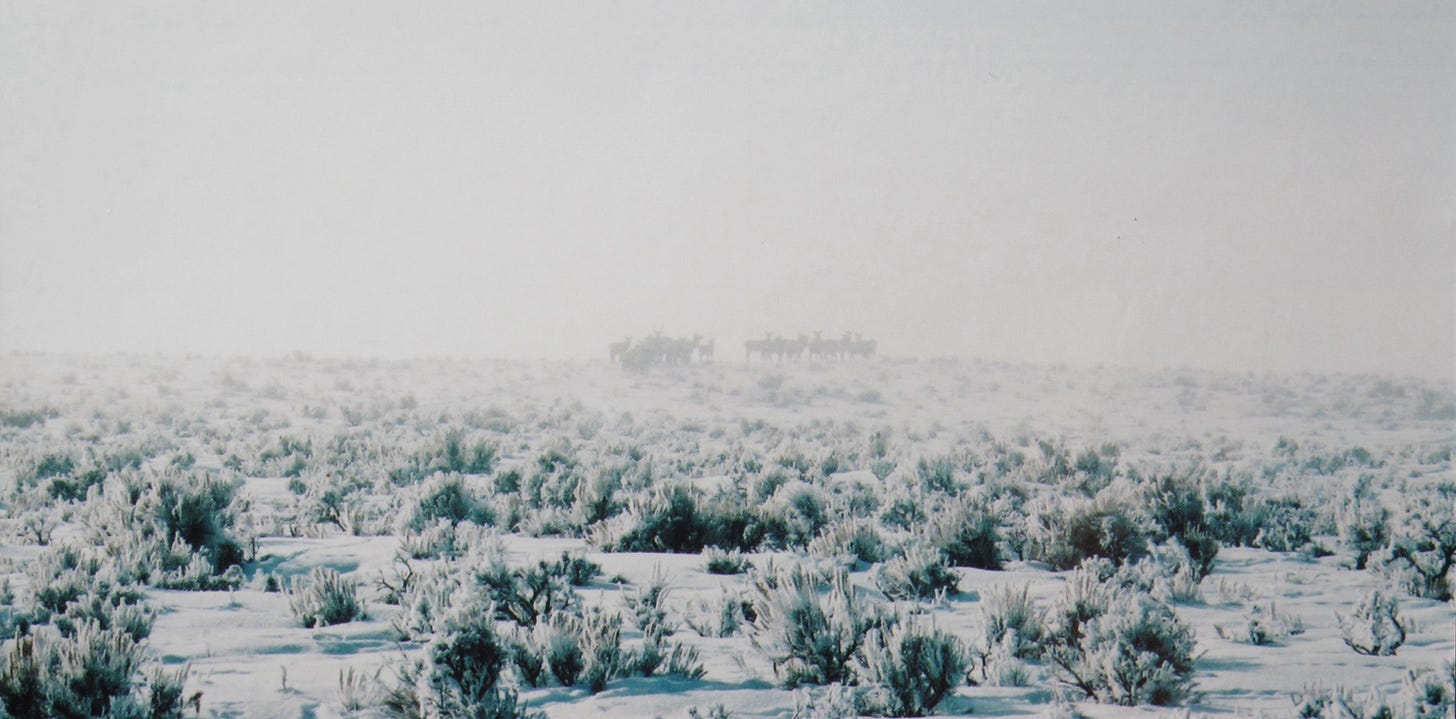Why I Decided to Take Up Hunting
And how one of my prouder stories turned to surprise in a London classroom
I once had the pleasure and privilege of speaking at a European conference held in London, England. The night before I was to speak, the other facilitators gathered together for dinner and got to know one another. Among the presenters was a very friendly woman who was to deliver a program on Culture the following day. She explained that her session would be all about how we should respect the cultural norms of different countries and peoples. She invited us all to attend her session if it didn’t conflict with our own.
So I did.
The Culture Class
As it began, she opened with a typical ice-breaker exercise. She asked us to choose a partner and share a story about ourselves that no one would expect to hear about us. I decided to relate the story about how I had recently hunted elk in northwest Colorado in the U.S. and harvested a 700 lb. animal. People don’t typically expect to hear that about a 5 ft 1 inch creampuff like me.
When it came time to describe our stories to the class, I shared how we tracked an elk herd on snowshoes over a half mile, sometimes on our hands and knees (uphill and barefoot both ways) through knee deep snow in zero degree temperatures, before I took my shot.
Well, I thought the instructor was about to pass out. She gripped the edge of the podium, put her hand to her heart and staggered backwards. I can’t remember her exact words, but “awful”, “barbarous” and “I can’t believe you would do such a thing!” were among them. She was stunned.
And I was just as shocked as she was. After all, this was a class about respecting other cultures. Surely hunting was not unheard of in her studies of other countries, their peoples and practices. People have hunted for food for centuries throughout the world.
Why I Hunted
Here’s how it started. I wanted to avoid being left at home when my significant other (from decades past) went out on hunting trips. At first, I tagged along and enjoyed being outdoors, seeing the scenery and watching great herds of animals churn up the ground as they raced across sagebrush hills. I also enjoyed the hormone-free, lean, healthy meat that would end up in the freezer, providing many meals to come.
But before long I decided I wanted to test my skills. I had earned a Marksmanship Ribbon in the Air Force, so I figured I had a chance at filling a hunting tag. I took my Hunter Safety Course, we put in for my tag and months later, off we went on our trip to the northern reaches of our state. Over the course of many years I was lucky enough to harvest both deer and elk, providing wholesome meals for the family.
Hunting was part of our family culture. My grandfather, father and uncles all hunted. My dad grew up on a farm and knew the value of both wild game and domesticated meat. But based on strict licensing rules, not everyone who applied was able to hunt and fewer still were able to “fill their tag” and bring home an animal. When dad did, it was cause for celebration.
How Hunting Encourages and Protects Conservation
But not everyone knows how widespread hunting is and how it controls game populations to prevent wildlife overcrowding, disease and habitat destruction.
In 2024 the number of hunting licenses, tags, permits, and stamps issued in the U.S. amounted to almost 40 million
According to estimates from a 2022 report, hunting contributes more than $250 billion dollars to the US economy each year
“Hunters do more to help wildlife than any other group in America,” said Chris DePerno, a professor of fisheries, wildlife and conservation biology at the College of Natural Resources. “They not only provide financial support for state wildlife agencies, but they also play an important role in wildlife management activities. A lot of people think state wildlife agencies and programs are funded by taxpayers. But in reality, they’re mostly funded by hunters,” DePerno said.
Read more about the role of hunting in wildlife conservation in this article.
Hunters were some of the earliest conservationists and countless organizations are dedicated to the preservation of habitat and protection of wildlife species. Through membership fees, organizations like the Rocky Mountain Elk Foundation and Mule Deer Association contribute to land conservation, wildlife-friendly fencing, migration corridors, calving areas, conservation agreements, proscribed burning, forest thinning, noxious weed treatments and the establishment of wildlife water developments — all projects designed to ensure the future of elk, deer and other wildlife.
Exploring Hunting Culture: Traditions & Social Aspects gives a thorough analysis of understanding hunting cultures, conservation of wildlife and ethics. It’s a well thought out article and I would recommend reading it for a better understanding of what drives the hunting culture.
My hunting days are done, but I look back on those memories with an appreciation for the skill needed to have a successful hunt and the respect hunters have for wildlife and the environment. I can forgive that instructor now for not knowing the full truth about cultural norms that run through the veins of countless peoples throughout the world.
After all, culture has more to do with societal practices than simply language, dance, song, clothing and art.






All great points that are lost in the emotional anti-hunting echo chamber.
Laura- this story is so interesting; I really enjoy hearing people's hunting journey's. It's incredible how some people, such as the presenter, can be locked into such a rigid mindset that they're simply unwilling to consider another's point of view, culture, or argument. For some reason I'm still surprised when an ideology can preemptively shut down a conversation.